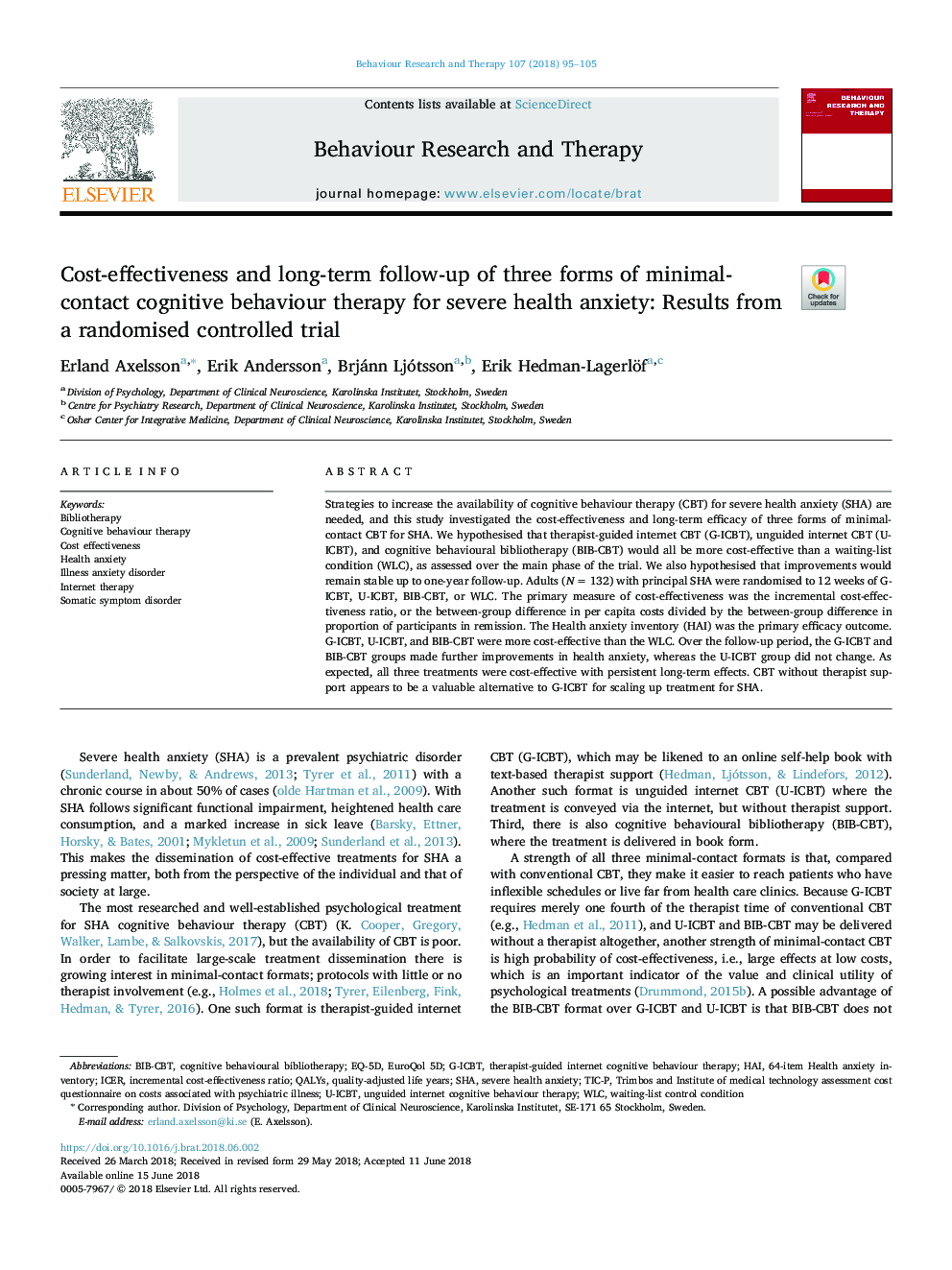| Article ID | Journal | Published Year | Pages | File Type |
|---|---|---|---|---|
| 7261761 | Behaviour Research and Therapy | 2018 | 11 Pages |
Abstract
Strategies to increase the availability of cognitive behaviour therapy (CBT) for severe health anxiety (SHA) are needed, and this study investigated the cost-effectiveness and long-term efficacy of three forms of minimal-contact CBT for SHA. We hypothesised that therapist-guided internet CBT (G-ICBT), unguided internet CBT (U-ICBT), and cognitive behavioural bibliotherapy (BIB-CBT) would all be more cost-effective than a waiting-list condition (WLC), as assessed over the main phase of the trial. We also hypothesised that improvements would remain stable up to one-year follow-up. Adults (Nâ¯=â¯132) with principal SHA were randomised to 12 weeks of G-ICBT, U-ICBT, BIB-CBT, or WLC. The primary measure of cost-effectiveness was the incremental cost-effectiveness ratio, or the between-group difference in per capita costs divided by the between-group difference in proportion of participants in remission. The Health anxiety inventory (HAI) was the primary efficacy outcome. G-ICBT, U-ICBT, and BIB-CBT were more cost-effective than the WLC. Over the follow-up period, the G-ICBT and BIB-CBT groups made further improvements in health anxiety, whereas the U-ICBT group did not change. As expected, all three treatments were cost-effective with persistent long-term effects. CBT without therapist support appears to be a valuable alternative to G-ICBT for scaling up treatment for SHA.
Keywords
Related Topics
Health Sciences
Medicine and Dentistry
Psychiatry and Mental Health
Authors
Erland Axelsson, Erik Andersson, Brjánn Ljótsson, Erik Hedman-Lagerlöf,
